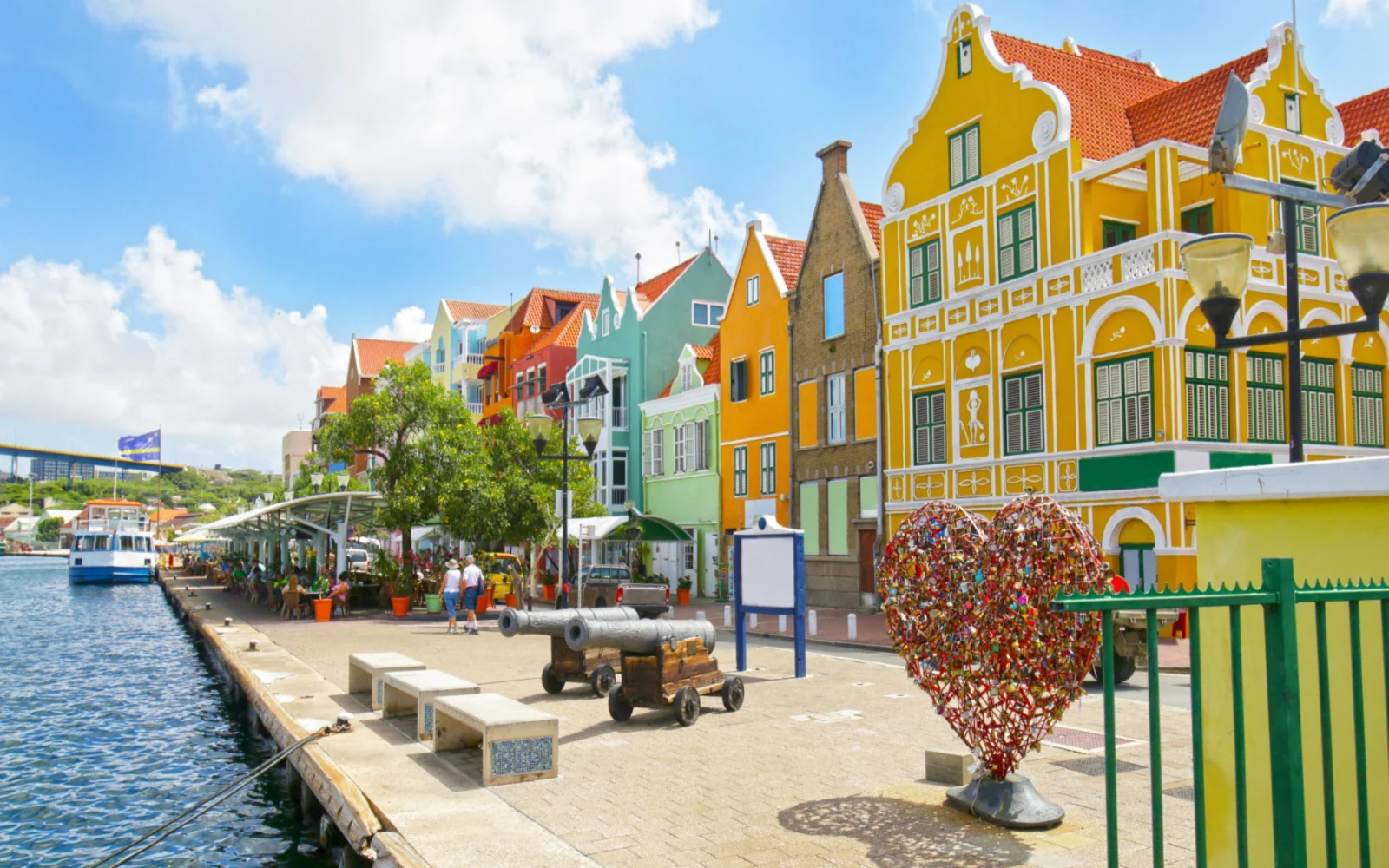Is Curacao safe to visit in 2025?
Curacao is generally considered one of the safest destinations in the Caribbean, with a low crime rate and minimal natural disaster risk. Most visitors experience a safe trip, but it’s advisable to be cautious of petty crimes like pickpocketing and bag snatching. The island is out of the Hurricane Belt, reducing the likelihood of severe storms.
Curacao, one of the ABC islands in the Caribbean that are technically part of the Netherlands, is a popular tropical destination. Over one million people visit the island each year.
Like most Caribbean destinations, Curacao is most popular for its beautiful beaches, such as Mambo Beach and Cas Abao Beach.
Visitors to towns such as Willemstad are charmed by the blend of Dutch architecture and tropical setting as well as the multicultural atmosphere that permeates the streets. If you really want to get off the beaten path, check out the rugged nature present in destinations such as Shete Boka National Park.
But while there’s countless reasons to visit this storied island, is Curacao safe to visit? Here’s our expert opinion.
Is Curacao Safe to Visit in 2025?
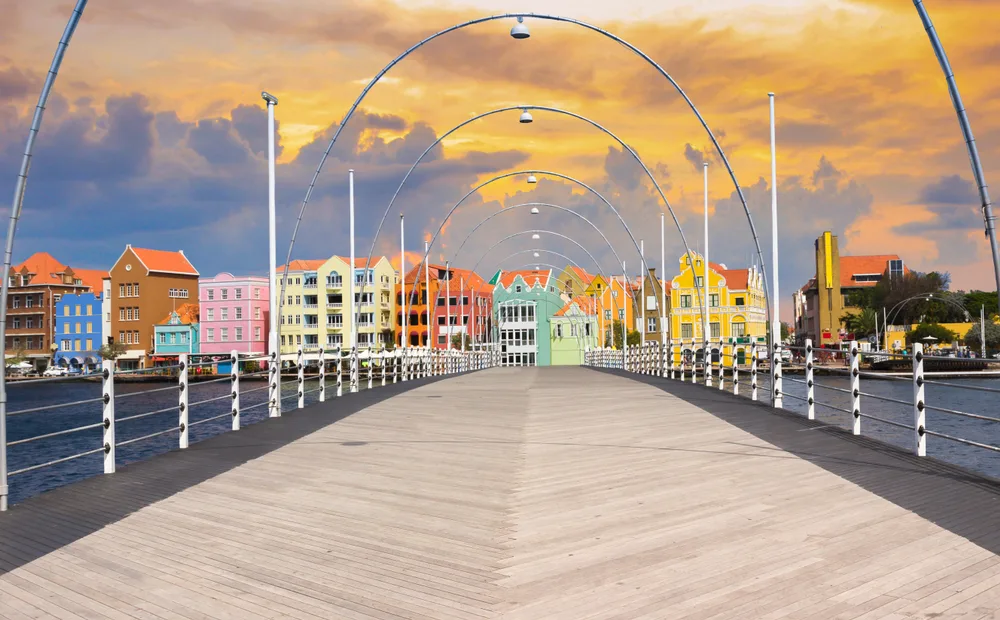
elvirkins/Shutterstock
Yes, Curacao is one of the safest destinations in the Caribbean. It has a very low crime rate and does not experience many natural disasters.
The vast majority of visitors to Curacao have a safe time with no incidents. For an insight into traveling to Curacao, all you need to do is check out the travel advisories for the island.
The United States State Department just issued a Level One travel advisory for Curacao, which is the lowest possible travel advisory level.
Besides taking basic precautions that you should probably also be taking at home; you don’t need to be especially on guard on your trip. But that’s not to say it’s a destination without any time at all.
Common crimes include:
- Pickpocketing
- Bag snatching
- Scams
- Vehicle break-ins
- Hotel room break-ins
- Drug trafficking
- Organized crime
Violent crimes also happen on the island, although they are very rare. Most violent crime incidents affect locals, not tourists. Tourists are more likely to be victims of property crimes because they do present a more lucrative target for potential criminals.
Besides some crime, Curacao doesn’t have very many other safety concerns. While many people hesitate to visit Caribbean destinations due to the threat of hurricanes, that is not a problem in Curacao.
Curacao lies in the southern part of the Caribbean Sea, placing it out of the Hurricane Belt. Storms will sometimes hit Curacao, but the worst that happens is some flooding, nothing like the extensive hurricane damage other parts of the Caribbean experience.
When traveling to Curacao, don’t neglect other basic safety tips. The weather can get very hot and humid, so drink plenty of water and apply lots of sunscreen.
Curacao is a famous dive site, but make sure you have the right experience for the dives that you tackle and don’t come up so fast that you get the bends.
Whenever you engage in water sports, make sure that you check the water conditions and aren’t putting yourself in danger. Make sure you get your recommended vaccines, such as the hepatitis vaccines.
Crime in Curacao
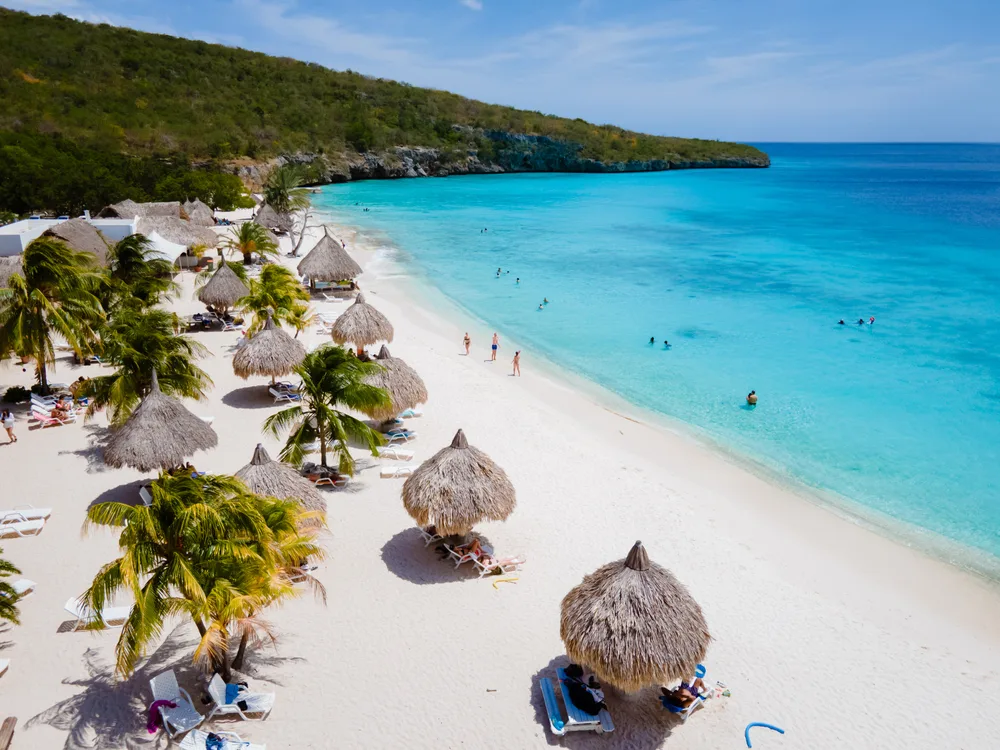
Fokke Baarssen/Shutterstock
Crime is a common concern when you travel to a new place, and Curacao is no different. Luckily, the Curacao crime rate is mostly low, and few people who come to visit have a bad time.
You still need to take precautions just as you would everywhere else you go in the world, but you don’t have to be constantly on your guard. In fact, constant vigilance might ruin your vacation.
Crime statistics in Curacao can also be conflicting. The World Bank shares that Curacao’s homicide rate is a whopping 19 incidents per 100,000 people. However, the most recent value the World Bank has is from 2007.
Since then, crime on the island has dropped drastically. The crime rate calculated per 100,000 people also unfairly makes places with small populations seem more dangerous than they are since the magnitude of a few incidents is so much larger when there are fewer people to divide them by.
Plus, the statistics from Curacao’s official Central Bureau of Statistics paint a much more optimistic view of Curacao.
In 2020, there were only 13 total life offenses, which includes homicide, manslaughter, and attempts of both. There were 270 incidents of other violent crimes, including armed robbery and assault.
The most common crimes were different forms of property crime. Home burglaries made up 24.8% of total reported crimes, business burglaries made up 20% of total reported crimes, and car thefts made up another 20% of total reported crimes.
Petty theft, which does not feature as its own category in crime statistics, is also a common problem. Public perception of Curacao is that crime is a problem.
On Numbeo, the country has a high score on the crime index, 65.13 out of 100. However, the site alerts readers that it received only a few respondents from Curacao, which skews the accuracy of the data.
According to the Central Bureau of Statistics report linked above, fewer and fewer people are victims of a crime in Curacao each year. Curacao does have serious problems with some forms of crime.
Many crime incidents on the island stem from its position on a popular smuggling route. International crime syndicates use Curacao as a stop on their drug trafficking and money laundering routes, while local gangs such as the No Limit Soldiers play their role in disturbing the peace as well.
Curacao is close to the South American coast, especially Venezuela, and has a lax banking system with little oversight (although authorities are trying to change that), making it very attractive to criminals.
However, most of these criminal activities don’t affect innocent bystanders, especially not foreigners.
Curacao as a whole is so peaceful that violent incidents stand out more when they happen, making them seem more prevalent than they actually are. Keep that in mind when reading up on information about Curacao, and don’t let worry affect your vacation.
Petty Theft
Petty theft is the most common crime you will encounter in Curacao, if you encounter any crime at all. Petty theft is a common problem in tourist destinations, especially in places such as Curacao where the income gap between foreigners and locals can be pretty wide.
The Canadian government lists common types of petty crime that people experience on vacation in Curacao. Pickpocketing and bag snatching are the most common types.
Minor burglaries such as break-ins of rental cars, vacation homes, and hotel rooms also happen. Overall, even the rate of petty theft is low in Curacao. It does see some uptick in Carnival season, which runs from January to March.
That is a problem present across the Caribbean, when Carnival crowds also bring out the thieves.
The many people descending on tiny island communities creates the perfect opportunities for people to take advantage of the busy atmosphere (and free-flowing atmosphere) and help themselves to other people’s possessions.
Luckily, most petty crime in Curacao is easy to deter. You don’t have to be hyper vigilant about storing your phone and camera immediately after use, but it’s better not to advertise if you have any expensive jewelry or watches.
You don’t need a money belt or other contraption to keep yourself safe but put valuables in a bag that you can zip or in your front pocket. Never leave your valuables unattended, especially not at the beach, which is a common area for pickpockets.
Lock your cars and accommodation. Curacao is not as scam-prone as other tourist destinations, but you might encounter some people taking advantage of you.
The most common scam you might encounter is related to US dollars. Most shops on the island accept American dollars and Antillean guilders, but some scammers might try to lie about the exchange rate or give you incorrect change.
However, keep in mind that these are things you’ll encounter at pretty much any destination (such as Mexico or anywhere else in the Caribbean), so it does not make Curacao any less safe.
Drug-Related Crime
Most serious incidents of crime on the island, including violent crimes such as armed robbery, are related to the drug trade on the island.
These incidents rarely affect tourists, or even locals who are not somehow affiliated with the drug trade. However, sometimes these incidents can affect your vacation.
The UK government warns citizens about the risk of travelers accidentally getting involved in the drug trade. Scammers may slip a package into your luggage or ask you to take a package on their behalf, inventing some sob story about a friend or relative abroad that desperately needs assistance.
Never leave your luggage unattended, especially in the airport, or accept packages from anyone.
Security measures in the Curacao airport and at many airports receiving arrivals from the Dutch Antilles are stringent due to the prevalence of the illegal drug trade in the region. You could get punished for something that you were not responsible for.
Avoiding Bad Areas
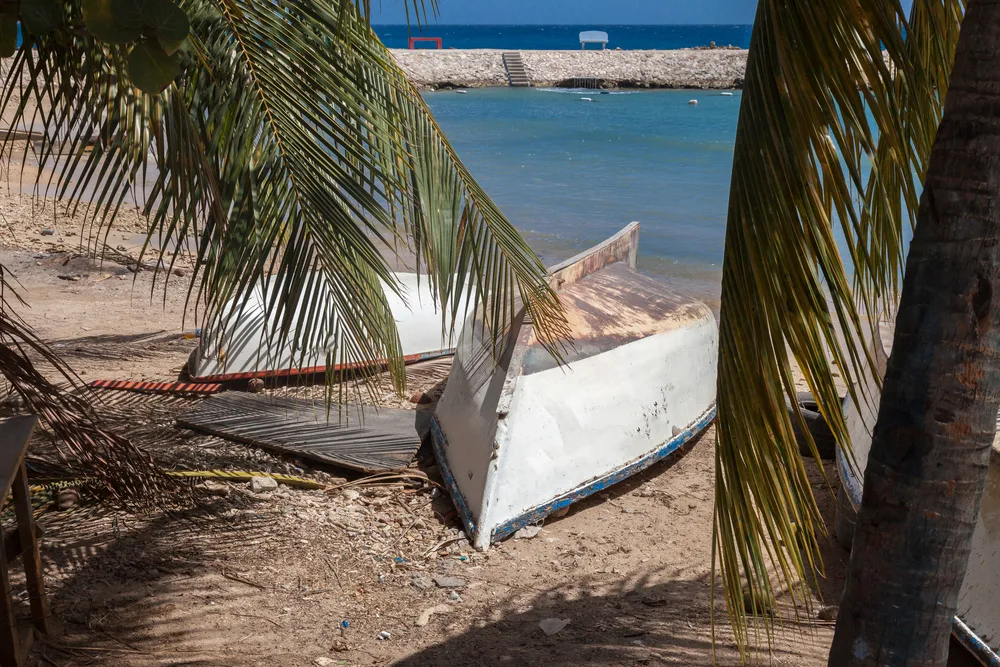
Gail Johnson/Shutterstock
Curacao has a few areas that are unsavory and that you should avoid, especially at night. Most of these areas are neighborhoods in the main town, Willemstad.
Avoid the neighborhoods of Stone Rich, Koraal Specht (which is where the notorious No Limit Soldiers gang is based), Otrobanda, Marie Pampoen, Seru di Kandela, and Kanga.
These neighborhoods are impoverished and have higher rates of violent crime, including gang violence.
Outside of Willemstad, don’t go to isolated beaches without checking the safety first, and especially not at night. Criminals, including muggers, often lurk on these beaches to try and isolate their victims.
Things to Consider
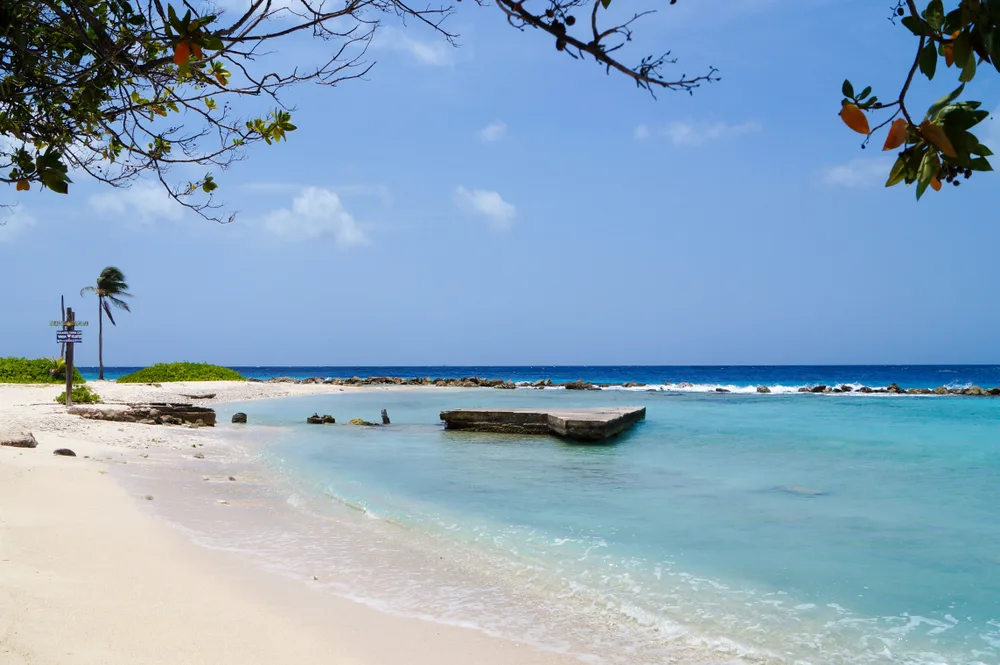
Daphne Bakker/Shutterstock
Here are a few other things to consider when you are talking about safety in Curacao:
- Car theft is a common problem in Curacao, and rental cars are often targeted. You can prevent some incidents by using a car lock, which is very common on the island and might even come with your rental car. Ask if it doesn’t.
- Taxi meters are not common in Curacao, so negotiate the price to your destination before you get into the car. Only take authorized taxis, which you can recognize with the license plate “TX.”
- There are many opportunities to get into nature in Curacao but be sure to follow local laws and don’t pick flowers or disturb nature in any other way. You could be fined.
- Curacao law is strict on drugs and most substances are illegal. Plus, partaking in drugs can put you on the radar of local organized crime groups, so that’s yet another reason why you shouldn’t partake.
Frequently Asked Questions
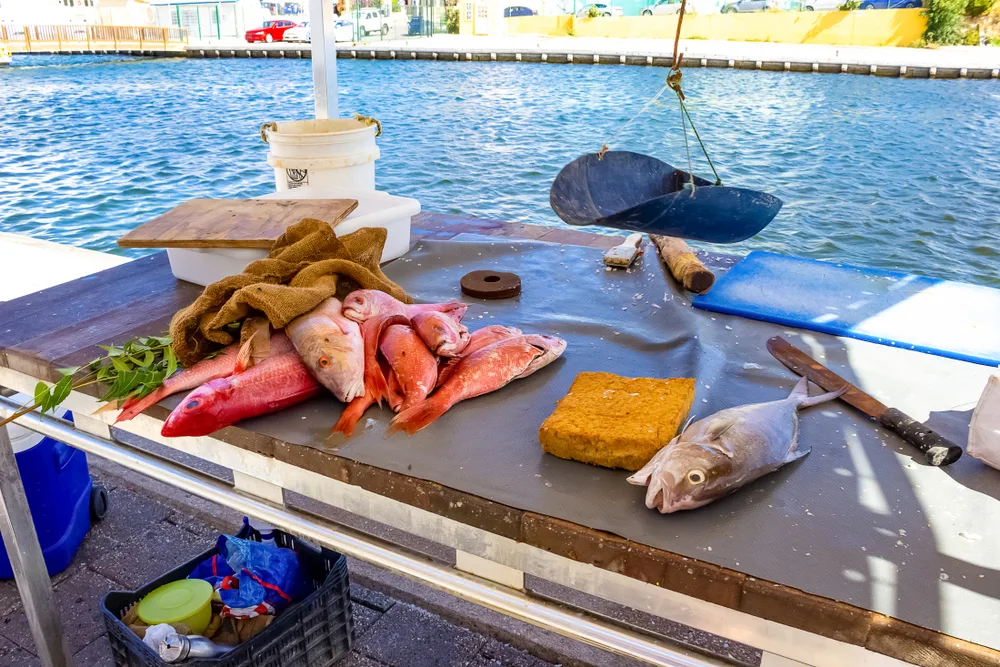
Solarisys/Shutterstock
Here are some other common questions tourists want to know before visiting Curacao:
What to avoid in Curacao?
Avoid visiting unfamiliar areas at night as there are some parts that are not very safe. Avoid leaving your valuables unattended, both because of the risk of theft and because of the risk of drug smuggling.
Is Aruba or Curacao better?
Aruba and Curacao are located close to each other and similar in many ways. However, Aruba is a much more popular beach destination, especially for families, and slightly safer. Curacao is less crowded and a more off-the-beaten-path Caribbean destination.
Is Aruba safer than Curacao?
Both islands have low crime rates, but Aruba’s crime rate is lower than Curacao’s. Plus, Aruba is less prominent on the international drug smuggling circuit.
Is Curacao cheap or expensive?
Curacao is one of the cheapest Caribbean destinations. It is more expensive than most Central American countries, but far more affordable than most other Caribbean islands. Especially if you visit during the low season, you can get great deals on your trip.
Can you swim in the ocean in Curacao?
Yes, you can swim in the sea in Curacao (technically, the waters surrounding it are not open ocean but sea). Just check ahead of time for any riptides or other hidden dangers.
So, Is Curacao Safe to Visit?
Curacao is safe to visit and might be one of the safest Caribbean destinations. It does still experience crime, including violent crime such as armed robbery and homicide. However, these incidents are rare and just feel magnified due to the small population.
Plus, violent crime rarely affects tourists. As long as you secure your valuables and use basic common sense, you will probably have an excellent time in Curacao. So what are you waiting for — book your trip today!



